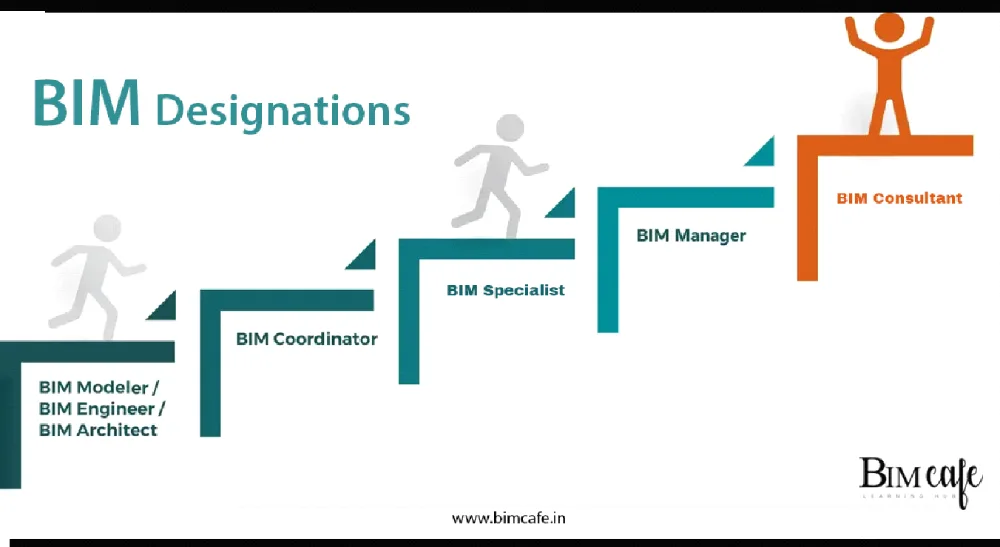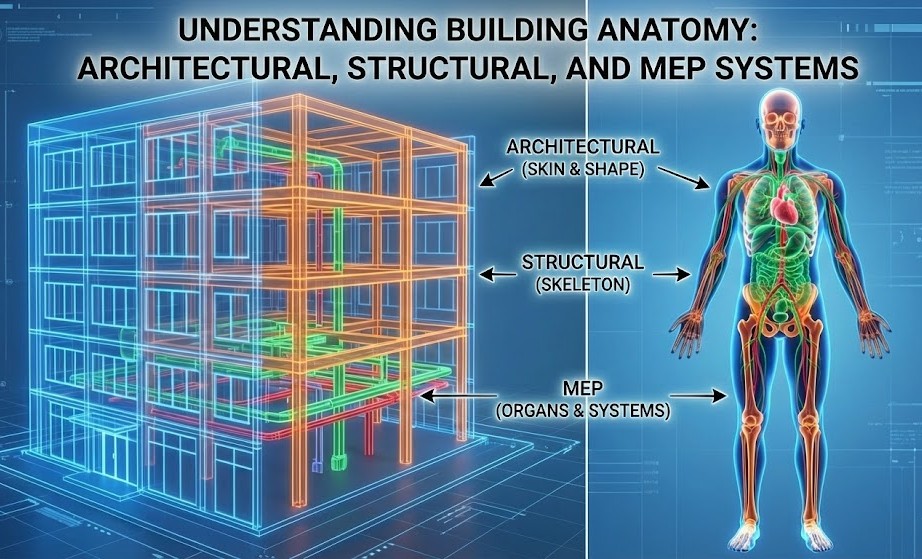
Author: Devika R
July 17, 2024
4 min read
As BIM adoption grows, so does the demand for skilled professionals. However, with various BIM roles and designations, navigating a BIM career path can be confusing. This blog aims to demystify the BIM professional landscape, outlining the levels, experience requirements, and typical designations you’ll encounter.
Levels of BIM Expertise:
BIM expertise can be broadly categorized into three levels:
- Basic BIM User: This is the entry point. Individuals at this level possess a fundamental understanding of BIM software and workflows. They can create basic 3D models and contribute to data entry tasks. Often, these are recent graduates with relevant degrees in Architecture, Engineering, or Construction Management who have taken introductory BIM courses.
- Intermediate BIM Specialist: As experience grows, professionals transition to this level. They can develop detailed 3D models, perform clash detection (identifying conflicts between different disciplines’ models), and collaborate effectively within a BIM workflow. This level typically requires 2-3 years of BIM experience and certifications specific to their area of expertise (e.g., Revit for architectural modelers).
- Advanced BIM Leader: These top-tier professionals are BIM champions. They possess in-depth knowledge of BIM processes, standards, and best practices. They can manage complex BIM projects, strategize BIM implementation for organizations, and contribute to the development of the BIM field. Reaching this level often requires 5+ years of experience, leadership qualities, and potentially a Master’s degree in a relevant field with a BIM specialization.
BIM Designations:

Within these levels, various BIM designations reflect specific roles and responsibilities. Here’s a breakdown of some common designations:
- BIM Modeler: These individuals are responsible for creating accurate 3D models of building components using BIM software.
- BIM Coordinator: They are the glue between disciplines, ensuring model consistency, data integrity, and resolving coordination issues.
- BIM Specialist: This broader term encompasses professionals with specialized BIM skills in structural analysis, MEP (mechanical, electrical, and plumbing) systems, or sustainability modeling.
- BIM Manager: Leading the BIM team, they establish BIM workflows, set project standards, and oversee the overall BIM execution.
- BIM Consultant: These external experts advise companies on BIM strategy, best practices, and implementation for optimal project outcomes.
The Significance of BIM Learning Centers:
BIM learning centers like BIM Cafe Learning Hub significantly aid the journey towards BIM expertise. These centers offer a comprehensive learning environment to bridge the gap between theoretical knowledge and practical BIM application. Here’s how they contribute to your BIM career path:
- Structured Learning Programs: BIM learning centers provide a curriculum designed to progressively develop BIM skills. This can be particularly beneficial for beginners seeking a strong foundation or professionals aiming to upskill in specific BIM areas.
- Hands-on Training: Effective BIM learning goes beyond theory. Reputable centers offer hands-on training using industry-standard BIM software, allowing you to develop practical skills and gain valuable experience working on real-world project simulations.
- Industry Expert Instructors: BIM learning centers are often led by experienced BIM professionals who can share industry insights and best practices beyond what textbooks offer. This exposure can prepare you for the realities of the BIM workplace.
- Certification Guidance: Many BIM learning centers provide guidance and support in obtaining industry-recognized BIM certifications. These certifications validate your skills and enhance your employability in the BIM job market.
- Collaborative Learning Environment: BIM learning centers foster a collaborative learning environment where you can connect with fellow BIM aspirants and professionals. This peer-to-peer interaction can boost your learning, problem-solving skills, and professional network.
Building Your BIM Career Path:

Remember, this is a general framework. The career path will vary depending on your background, interests, and company structure. Here are some tips:
- Start with a strong foundation: Pursue a relevant degree in Architecture, Engineering, or Construction Management, and complement it with BIM software training and certifications.
- Gain practical experience: Look for entry-level BIM roles to build foundational skills and explore different areas of BIM.
- Seek continuous learning: The BIM field is constantly evolving. Stay updated with the latest trends and technologies through courses and industry events.
- Network with BIM professionals: Connect with experienced individuals to gain insights and mentorship.
By understanding the different levels and designations, and leveraging the valuable resources offered by BIM learning centers, you can effectively navigate your BIM career path. Dedication and continuous learning make you a valuable asset in the ever-growing BIM world.





